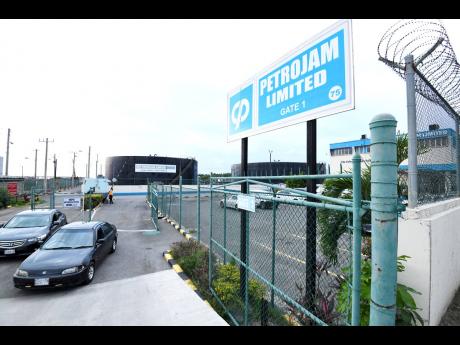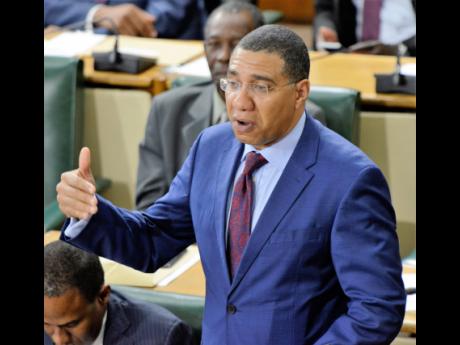Petrojam's value eroded - Oil refinery's sale price plummets due to inaction on upgrades
Jamaica’s sole oil refinery, Petrojam, has seen its market value eroded by nearly US$100 million because of a decade of broken promises, delays and inaction by the Venezuelan government, the Andrew Holness administration has revealed.
According to newly appointed Energy Minister Fayval Williams, Petrojam’s market value was listed at between US$126 million and US$128 million by international oil and gas consultants Muse Stancil in 2006 when Jamaica signed a joint-venture agreement with Petróleos de Venezuela S.A. (PDVSA), Venezuela’s state-owned oil company that was expected to finance a major upgrade of the refinery, among other things.
But Williams disclosed yesterday that an evaluation carried out last year by the same consultants listed Petrojam’s market value at US$34 million.
“The joint venture destroyed value, significant value,” she said during a marathon debate in Parliament on the proposed legislation that would allow the Jamaican Government to retake the 49 per cent stake in Petrojam that was sold to PDVSA under the 2006 agreement.
However, Central Manchester Member of Parliament Peter Bunting surprised lawmakers with a third evaluation that was conducted by Muse Stancil in June 2017 that assessed Petrojam’s market value at US$170 million and questioned why it was not disclosed.
“I want the prime minister to explain whether there was such a valuation and to explain the destruction of value between 2017 and 2018 under their watch,” Bunting said.
Finance Minister Dr Nigel Clarke quickly intervened and declared “there is no 2017 valuation”.
But Holness, the prime minister, later confirmed that an evaluation was conducted in 2017 while his administration contemplated a $100 million investment in upgrading the Vacuum Distillation Unit (VDU) at Petrojam.
“A valuation was done on the basis of securitising the investment. That was not done with the intention of using that as the negotiating price for a sale,” he explained.
The other evaluation, he said, was done in 2018 when the Government “got to the point when we had to sell”.
Holness, in defending his Government’s decision to retake Venezuela’s shares in Petrojam, pointed to what he described as the broken promises and delays by the South American country to honour its commitment to upgrade the 55-year-old refinery.
He said technical assessments have revealed that by next year, refining operations at the 55-year-old refinery will be “negatively affected” if the company was not able to undertake phase one of the upgrading work, which is the VDU.
Among the reasons, Holness said, was the transition by the Jamaica Public Service Company to LNG for its 190-megawatt plant in June later this year and the imminent international obligation regarding sulfur, which takes effect on January 1 next year.
“Without an upgrade, Petrojam would be unable to further process HFO [heavy fuel oil] into high-value products, and having lost it major customer, JPS, Petrojam would become unprofitable,” he warned.
Holness said all of this comes against the background of the difficulties faced by the energy sector because of sanctions imposed on the Nicolas Maduro administration by the United States.
The bill was passed by the Lower House and will now go to the Senate for approval.


